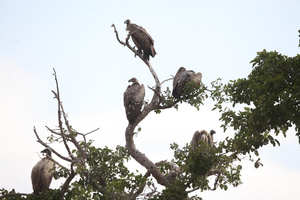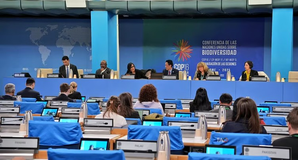Vultures provide ecosystem services worth $1.8 billion annually in southern Africa: Report

Nairobi, Feb 25 (IANS) The ecosystem services provided by vultures in the southern African region, including sanitation and pest control, are estimated at $1.8 billion annually, according to a report launched in the Kenyan capital on Tuesday.
Compiled by BirdLife International, a conservation lobby, the report focuses on Botswana, Zimbabwe and Zambia, emphasising the role of vultures in maintaining ecological balance and promoting human health.
The African continent is home to 11 species of vultures, with seven facing the risk of extinction and listed as vulnerable, endangered, or critically endangered on the International Union for Conservation of Nature’s Red List of Threatened Species, according to the report.
Africa’s vulture population, according to the report, plummeted by 80 to 97 per cent over the last five decades, and the main threats facing these majestic birds include poisoning and electrocution.
The report decries the widespread poisoning of vultures in southern Africa linked to cultural beliefs, with habitat destruction, climate change, and electrocution by high-voltage transmission lines threatening their survival.
In 2019, mass poisoning led to the death of 500 critically endangered vultures in Botswana, the report notes, emphasising that the iconic birds play a vital role in boosting tourism in the southern African region.
The report warns that failure to protect vultures could lead to about $47 million in losses to the region’s economy annually, while conservation efforts could generate an estimated $30 million every year, Xinhua news agency reported.
Matthew Lewis, head of conservation in Africa at BirdLife International, said the decline of vultures on the continent is concerning. He emphasised the urgent need for key actors to step up their conservation efforts in the natural habitats and accrue myriad economic, health and ecological benefits for communities.
“This groundbreaking study on the economic value of vultures in the southern African region is crucial in advancing conservation efforts,” Lewis said.
Leeroy Moyo, preventing extinctions programme manager at BirdLife Zimbabwe, a non-profit organisation dedicated to the conservation of indigenous bird species, underscored the importance of policy advocacy, community-focused awareness campaigns, and innovative conservation strategies to secure a sustainable future for vultures.
–IANS
int/jk/vd




